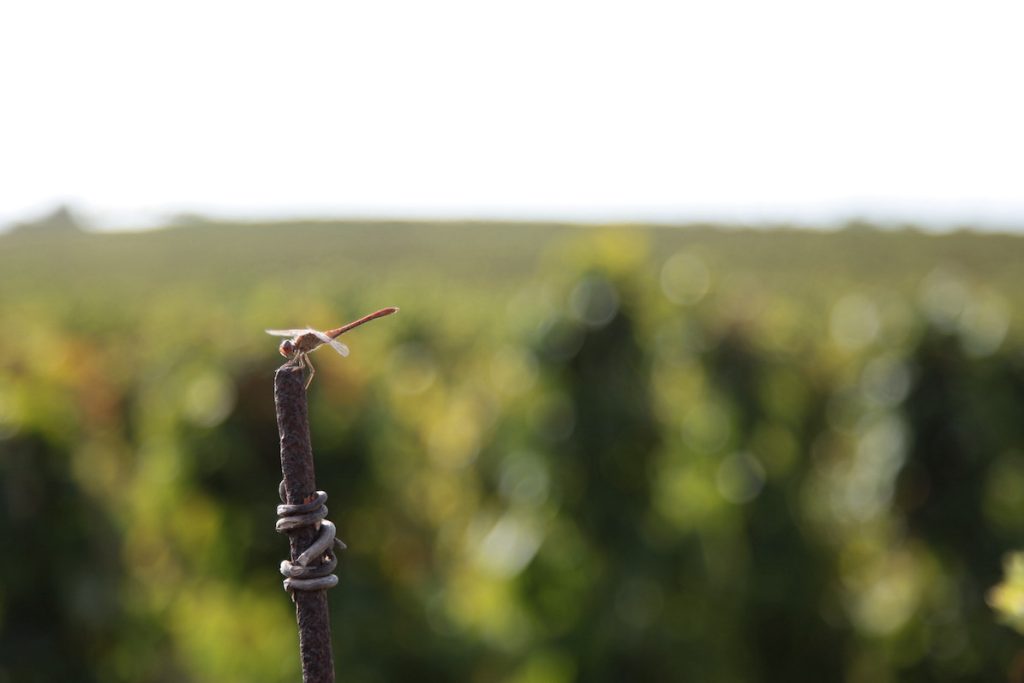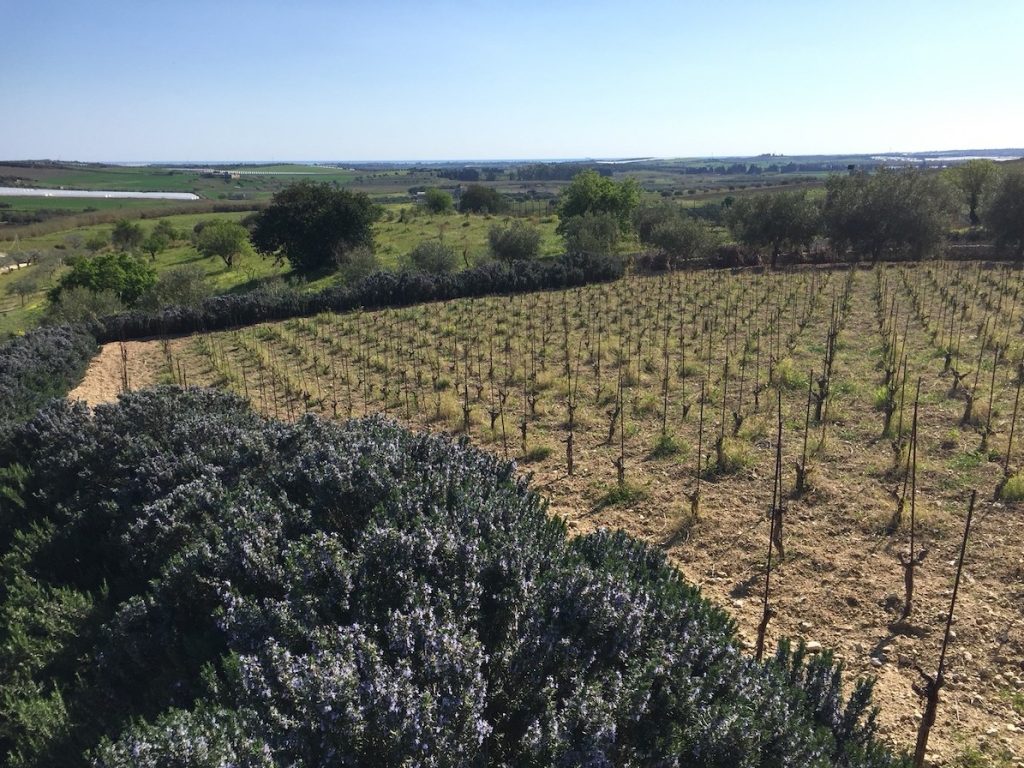Dear friend,
Marabino has always paid particular attention to respecting biodiversity. The area where we are located, near the oasis of Vendicari, is a paradise: it is rich in plants and shrubs typical of the Mediterranean scrub such as thyme, oregano, myrtle, etc. In our lands, we have added fruit trees such as apricots, peaches, azaroles, pomegranates, olive and carob trees to these spontaneous plants, as well as various medicinal and aromatic plants.
It’s easy: we believe that monoculture causes a lack of balance, we believe that nature is made up of variability, in fact, if we observe our “scrub” we will always find great harmony, given exactly by this variety. This is what we want to recreate around our vineyards, a natural balance rich in native biodiversity.
But what are we talking about when we say “biodiversity”?
We are talking about the great variety of animals, plants, mushrooms and microorganisms that make up our planet. A multiplicity of species and organisms which, in relation to each other, create a fundamental balance for life on Earth. In fact, biodiversity guarantees food, clean water, safe shelters and fundamental resources for our survival, it is our life insurance.
However, this fragile balance is now at risk due to our presence and human activities in general. The increase in our use and consumption of natural resources, more than the Earth can produce, is endangering the entire survival of the Planet. We have exploited the oceans, destroyed forests, polluted our water resources and caused a real climate crisis. Nevertheless, Nature has a feature which is unique, that is the ability to regenerate and adapt itself to changes. By reducing our impact on the Earth, managing resources better, leaving nature time to regenerate, biodiversity can once again be the protagonist.

In our small way, the Biodynamic management of the land greatly increases the microbiological activity of the soil, thanks to a multitude of microorganisms that create biodiversity even in the subsoil, under the surface, thus increasing fertility and giving more vitality to the plants.
Furthermore, taking care of the borders, of the dry stone walls and of the hedges, is an essential gesture in order to recreate that landscape harmony which is the main feature of “Val di Noto”, a territory whose biodiversity is enriched by the presence of a multiplicity of birds, birds of prey, herons, as well as wild rabbits, foxes, reptiles and insects.
That being said, in our opinion, the concept of biodiversity must not be limited to what grows around our vineyards, we strongly believe that it must be an integral part of THE VINEYARD. The choice to plant our vines strictly by hand, and not by machine, grafting the shoots directly on the field with mass selection goes exactly in this direction.
Mass selection is the traditional method of plant reproduction: it begins with the selection of the scions (vine shoots) chosen from the oldest vineyards, planted before clonal selection (an industrial technique dating back to the 70s, that involves the reproduction of an infinite number of plants from the same “parent”, plants with the same DNA, exactly the opposite of the concept of biodiversity) and ends with their planting in the vineyard. The mass selection is carried out in the field with a manual work, made of observation of the plants, thanks to expert grafters that are increasingly rare to find, a job which involves costs and processing times far higher than the choice of buying all the same shoots at any nursery.
With mass selection, a greater richness of grape biotypes of the same variety is guaranteed, a choice that will inevitably confer greater complexity and richness to the wines. Only beginning with a careful mass selection can we give space to biodiversity in the vineyard in order to obtain the best expression of the territory in the bottle, especially if we do not want to find ourselves with increasingly homologated wines, obtained from daughter plants of a single mother which had been cloned an indefinite number of times.

The concept of biodiversity is strongly linked to the essential elements of life, one of the most important of which is water. Drinking water is not an inexhaustible and unlimited resource, therefore, it must be preserved and used first of all for primary needs such as drinking, cooking, washing. Most importantly, it must not be wasted.
The work in each cellar involves the use of large quantities of water in order to keep the winemaking environments and all equipment clean and suitable for food use. Water is a precious good, which is why here in Marabino we have developed a system which purifies all the water used in the cellar through treatment processes that reproduce the natural purification processes characteristic of wet areas, where soil, vegetation and micro-organisms interact.
We designed and built together with the CSEI, the Study Center of Economics applied to Engineering led by Prof. Salvatore Barbagallo – Full Professor of Agricultural Hydraulics and Agricultural and Forestry Systems at the University of Catania – an installation with three phyto-depuration systems that allows us to achieve an optimal framework of sustainability: we have reduced our environmental impact with extraordinary results, much more sustainable than those measured in water treated with conventional systems and, moreover, without the production of sludge to be disposed of.
The phyto-depuration installation is a structure for the natural treatment of waste water that does not involve costs for energy consumption, which uses natural factors such as solar radiation and the action of native lake plants, and which ends its journey in a natural pond, priceless source of life in an arid environment like ours. We purify our waters thanks to Nature.
In other words, within a farm the improvement of the agricultural landscape leads to the creation of new balances which are essential to obtain a sustainable reality, respectful of nature and human work. Today, more than ever, the agricultural choice is a political act, a social choice, a vision based on intuition, observation and reflection.
Thank you for reading this far. Till next time.
Pierpaolo Messina
